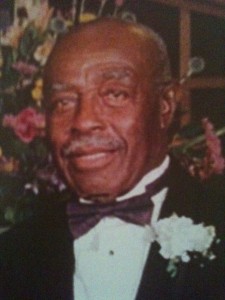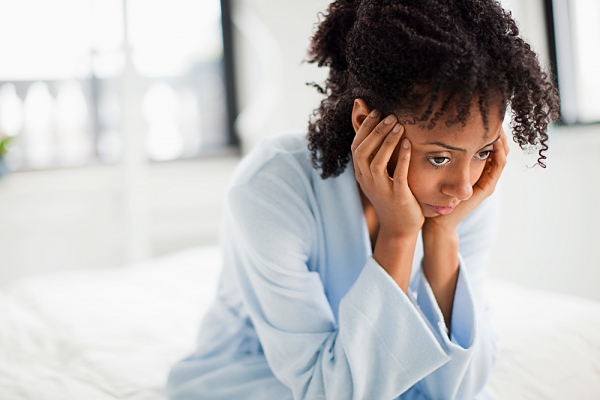-
“Whoever is educating your child is discipling your child.”—Voddie Baucham
The public education system is in crisis; we all know that, but what do we plan to do to make sure our children aren’t caught in the crisis? This is what pastor, national speaker and homeschooling advocate Voddie Baucham addressed with nearly 200 pastors and parents last Thursday in Detroit. At Redeeming Two Generations, a family discipleship conference held at Evangel Ministries, he said Christians should be the most concerned because the crisis goes beyond fiscal irresponsibility. There is and has always been a moral crisis within the public schools and Christian parents need to respond biblically.
“Christian parents are obligated to give their children a Christian education,” he said, generically calling public schools Caesar, the Roman ruler in biblical times. “You only render to Caesar that which is Caesar’s. Your child is not Caesar’s,” said Dr. Baucham, also a noted cultural apologist. “If we continue to send our children to Caesar for education we need to stop being surprised when they come home as Romans.”
With children being in school the majority of the day, Dr. Baucham said the school curriculum, teachers and peers are the ones educating our children. He quoted Luke 6:40 to support his belief that Christians shouldn’t allow their children to attend public school. “A disciple is not above his teacher, but everyone when he is fully trained will be like his teacher.” He then detailed the connection between child education and discipleship when discussing the history of the public education system, citing statistics and biblically supporting his claims.
Dr. Baucham said when the public school system began around 1870, Christian leaders, like A.A. Hodge, were against the formation.
I am as sure as I am about Christ’s reign that a comprehensive and centralized system of national education, separate from religion, as is not commonly proposed, will prove the most appalling enginery for the propagation of anti-Christian and atheistic unbelief and of antisocial nihilistic ethics individual, social and political, which this sin-rent world has ever seen.
Framers of the educational system advocated just what Hodge predicted would happen.
Education is thus a most powerful ally of humanism, and every public school is a school of humanism. What can the theistic Sunday school, meeting for an hour a week and teaching only a fraction of the children, do to stem the tide of a five-day program of humanistic teaching?—Charles Potter, a signer of the Humanist Manifesto and an architect of modern public educational system.
Our schools may not teach Johnny to read properly but the fact that Johnny is in school until he is 16 tends to lean toward the elimination of religious superstition.—Paul Blanshard, a signer of the Humanist Manifesto and an architect of modern public educational system.
Public education is the parochial education of scientific humanism.—Joel Burnette, a signer of the Humanist Manifesto and an architect of modern public educational system.
With this foundation in the late 1800s and early 1900s and curriculum designed around it, Dr. Baucham said “Our schools are incapable of training our children in the very things that God commands.”
Armed with statistics showing that Christian children attending public schools had almost the same biblical worldview as secular humanists, Dr. Baucham said that the public school system is accomplishing what it set out to do. His statistics also revealed that most evangelical Christian children eventually break from Christianity by the time they exit college.
Though he and his wife home educate their seven children, he believes there are other ways to provide a Christian education, including enrolling children in Christian schools. Whatever route you take, he believes the following are six basic tenets to follow:
1. We must view education as discipleship (Deuteronomy 6:6-7, Luke 6:40).
2. We must avoid ungodly influence (Proverbs 1:1-2, 14:1, 1:7, 13:20, Matthew 18:7).
3. We must avoid unbiblical teaching (Romans 12:2, 2 Corinthians 10:5, Timothy 6:20-21).
4. We must teach God’s law (Matthew 5:15-16).
5. We must be gospel-centered (Galatians 1:6-9).
6. We must be good stewards (Mark 12:15-17).
As a recovering strong black woman striving to be a strong biblical woman, Dr. Baucham gave me much to consider as my husband and I seek the Lord (as we do every year) for where He wants our son to be educated. I’m sure his insights, along with my own parenting philosophy, will help us develop the right discipleship plan for all our children.
What methods do you use to disciple your children? What has been your experience in educating your children?
Copyright 2011 by Rhonda J. Smith
My One Thousand Gifts List
#61-70
Being able to go to church today
Being able to take communion
A great sermon challenging the congregation to be pro-life
Flynn and Joshua spending time together
Enjoying Justus and Nate
Participating in the Bloom Book Club
My mom watching Justus and Nate
For the children being physically safe
Safe travel to court
Money to pay the citation for not possessing my proof of insurance




